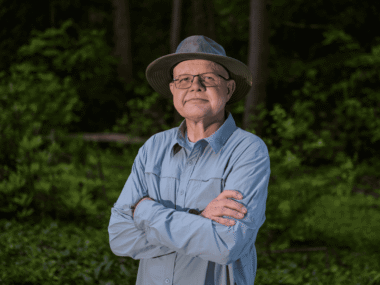Our quest to find a doctor with experience treating Fabry disease
Obtaining a diagnosis is a journey unto itself, and then comes the next chapter
Written by |

My first column for Fabry Disease News introduced readers to my family’s Fabry story. In it, I described the unexpected “crooked lines” of a summer trip that led to my twin teenage sons — Anthony and Michael — being diagnosed. As we evaded one storm — with cyclone-force winds and devastating rains — we ran straight into another one that was silently lurking in our genetic makeup, waiting to rear its head.
The conclusive announcement by the dermatologist who diagnosed my son Anthony resounded like a gunshot at the start of a race. In our case, it was like a marathon we hadn’t trained for.
Initially, we worked the phones, making call after call to every friend and family member we could think of in the medical field, to ask if they knew about Fabry disease or had seen a patient with it. Some said they had to study it to pass their board exams, but no one we knew had ever attended to anyone with it. We didn’t want to take a risk with someone who didn’t have experience treating the disease, so we kept calling, searching, and praying.
A miracle find
A few days into the mad race for answers, a friend searching on Google found Dr. Raphael Schiffmann. I called immediately and left a message. Later that day, a friendly voice called me back. It was Schiffmann, who enthusiastically offered to see the boys before the end of the week.
Feeling burdened by the unknown, my husband and I accompanied our twins into a small, sterile exam room. Shortly after, the tension in the room evaporated when a man with a broad smile, thick accent, and the aura of Santa Claus appeared.
In his own jolly way, Schiffmann asked several questions while pulling one ancient apparatus after another from a leather doctor’s bag. He spent two hours examining the boys and getting to know their stories.
While he was certain their lab work would confirm Fabry disease, he reassured the boys that they would be able to live normal lives. He praised them for playing sports and enduring landscaping work during the long and hot Texas summers. He showed interest in VanVickle Bros. Landscaping, the company my sons started, and encouraged them to keep doing everything they could physically tolerate.
I took copious notes, trying to make sense of what the doctor was saying. Schiffmann explained the gravity of the disease with gentleness and charm. He pointed out that the pain and other problems Michael and Anthony had been experiencing since childhood were evidence of Fabry disease.
Lightbulbs went off for all of us. The boys had played tackle football since they were 6, but a couple years later, they began complaining of foot pain when they practiced. A physical therapist suggested it might be plantar fasciitis, so we bought insoles for their shoes, and they continued to play through the pain all of these years.
Abdominal pains led to false alarms about appendicitis or irritable bowel syndrome. We tried gluten- and dairy-free diets, but eventually, they made up their minds about which foods they were willing to avoid. We never imagined the culprit behind everything was a genetic mutation.
Genetic testing of all family members would eventually be necessary, but for the moment, our focus was on treating Michael and Anthony. The twisted road ahead — of lifelong treatment — was daunting. But we soon discovered that we didn’t have to run this marathon alone.
We had extraordinary support from one of the world’s most knowledgeable doctors. His scientific understanding combined with vast experience treating people with this disease was invaluable. Before us, he had connected countless Fabry patients with help, healing, and hope. That hope became our beacon, illuminating a straight path through the storm clouds of chronic illness.
Note: Fabry Disease News is strictly a news and information website about the disease. It does not provide medical advice, diagnosis, or treatment. This content is not intended to be a substitute for professional medical advice, diagnosis, or treatment. Always seek the advice of your physician or other qualified health provider with any questions you may have regarding a medical condition. Never disregard professional medical advice or delay in seeking it because of something you have read on this website. The opinions expressed in this column are not those of Fabry Disease News or its parent company, Bionews, and are intended to spark discussion about issues pertaining to Fabry disease.







Leave a comment
Fill in the required fields to post. Your email address will not be published.